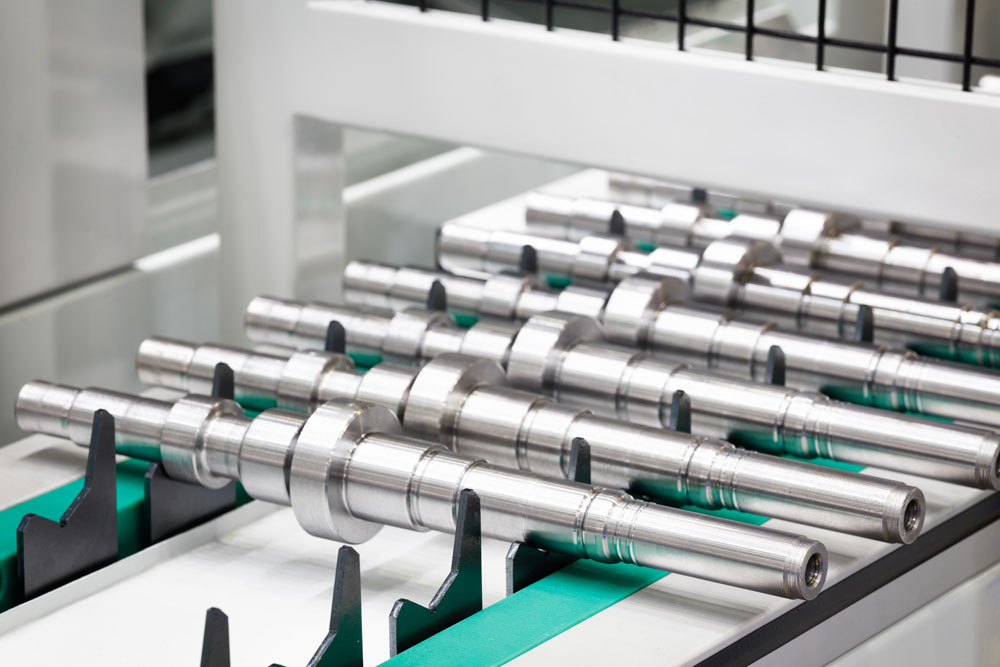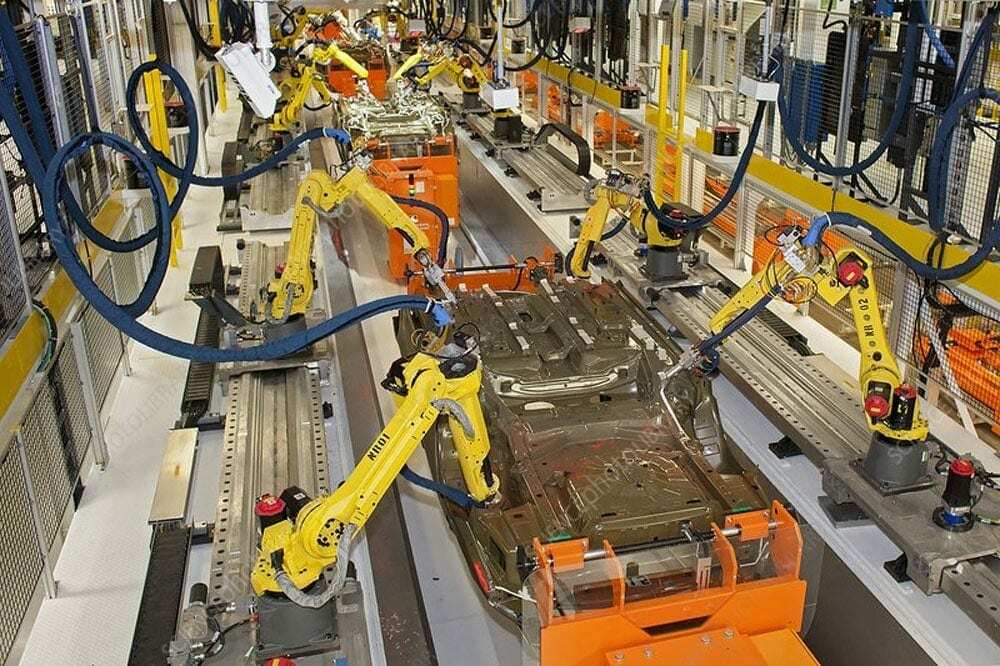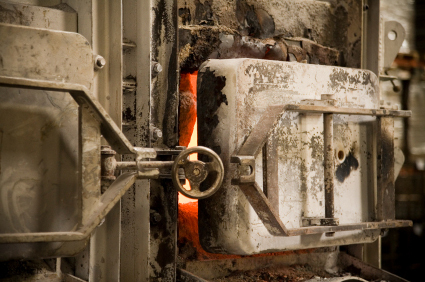4130 Alloy Steel
When industries demand more from their materials, Pennsylvania Steel Corporation answers with FLEXOR® — the high-performance AISI 4130 steel alloy equivalent designed to exceed expectations. FLEXOR® outperforms standard 4130 alloy steel by offering improved strength, superior machinability, and exceptional uniformity across all applications.
Whether you’re in automotive, oil and gas drilling, machine building, forging, tool making, or workholding systems, FLEXOR® delivers the reliability and versatility you need. As a proprietary grade alloy steel, FLEXOR® provides a dependable alternative to standard 4130, engineered for tough environments and demanding mechanical performance.

| Alloy | 4130 | FLEXOR® |
|---|---|---|
| Carbon, C | .28-.33 | .32-.36 |
|
Manganese, Mn |
.40-.60 | .60-.80 |
|
Phosphorous, P |
.035(max) | .025(max) |
|
Sulfur, S |
.04(max) | .025(max) |
|
Silicon, Si |
.15-.35 | .15-.30 |
|
Chromium, Cr |
.80-1.10 | .75-1.00 |
|
Molybdenum, Mo |
.15-.25 | .40-.60 |
|
Tungsten, W |
- | .40-.70 |
FLEXOR® vs. 4130 Alloy Steel: Chemistry That Outperforms
While traditional 4130 alloy steel is a trusted material in many sectors, FLEXOR® takes it a step further with a carefully optimized chemistry designed for superior performance. Compared to 4130, FLEXOR® includes higher levels of carbon and molybdenum, with tightly controlled sulfur and phosphorous content to improve overall material cleanliness and consistency.
This proprietary blend results in superior hardenability, uniform hardness across larger cross-sections, and a reduced risk of distortion during heat treatment. FLEXOR®'s consistent microstructure ensures fewer weak points and provides outstanding fatigue resistance for critical applications.
FLEXOR® is a special custom alloy steel that can offer more control and consistency over its chemical makeup. This makes it possible to achieve more uniform mechanical qualities and thermal treatments.
Simply put, FLEXOR® is the SAE 4130 steel alternative engineered for higher performance and greater dependability.
Mechanical Properties That Drive Success
FLEXOR® is not just about chemistry — its mechanical properties consistently outperform those of 4130 alloy steel. Where 4130 maxes out with ultimate tensile strength around 81,200 psi, FLEXOR® exceeds expectations, reaching up to 225 ksi (or over 225,000 psi) at higher hardness levels.
Key advantages of FLEXOR® include:
- Higher Tensile Strength: Up to 225 ksi at 45 HRC
- Enhanced Yield Strength: Up to 205 ksi, offering better load-bearing capacity
- Superior Fatigue Resistance: Higher core hardness ensures extended part life under cyclic stress
- Outstanding Toughness: Higher impact values and better elongation for demanding environments
These enhancements translate into reduced maintenance costs, longer service life, and greater operational efficiency across industries.
FLEXOR® Machinability: Faster Production, Lower Costs
Machinability matters — especially in sectors like automotive, die casting, tool making, and transfer systems. FLEXOR® is engineered for smoother machining processes, reducing tool wear and increasing throughput compared to traditional 4130 alloy steel.
FLEXOR®'s cleaner composition and refined grain structure enable:
- Easier cutting and shaping
- Smoother surface finishes
- Reduced tool wear and extended tooling life
- Faster production times and lower manufacturing costs
For OEMs and fabricators aiming to boost productivity while maintaining precision, FLEXOR® provides a clear competitive advantage.
Industries Trusting FLEXOR® for Critical Applications
FLEXOR® has proven its performance across a wide range of industries that traditionally rely on AISI 4130 steel alloy equivalents. Its versatility, strength, and cost-effectiveness make it the material of choice for:
- Automotive & Performance Racing: Suspension parts, drivetrain components, and racing applications requiring high fatigue strength
- Oil & Gas Drilling: Downhole tools, connectors, and equipment demanding extreme toughness
- Forging & Forming: Warm and cold forming dies and tools benefiting from uniform hardness and strength
- Machine Building & Tool Making: Machine components, tooling systems, and fixtures requiring reliable durability
- Workholding & Transfer Systems: Clamping components, jigs, and fixtures where high wear resistance is critical
- Powdered Metal & Die Casting: Components exposed to thermal cycling and mechanical stress
No matter your industry, FLEXOR® offers a dependable and superior SAE 4130 steel alternative for high-performance environments.

Get a Custom Quote: Experience the FLEXOR® Advantage
When your application requires more than off-the-shelf 4130 alloy steel, FLEXOR® is the clear choice. As your trusted partner, Pennsylvania Steel Corporation is ready to help you unlock better performance, extended component life, and reduced production costs.
Contact our experts today to learn how FLEXOR® can become the backbone of your next project. Request a quote or consult our metallurgists to explore FLEXOR®’s full range of sizes and conditions, including hot rolled rounds, forged billets, ground and polished bars, and more.
Choose FLEXOR® — the AISI 4130 steel alloy equivalent that’s engineered for your success.
Contact Pennsylvania Steel Corporation today to learn more about FLEXOR® and its advantages over 4130 alloy steel.
FLEXOR® Properties
FLEXOR®'s dependable quality and adaptability in heat treatment allows for a wide range of physical properties that are more appealing than those of typical ASTM, AISI or SAE 4130 alloy steel.
FLEXOR® has a higher core hardness which typically means a more uniform hardness through any cross section. The more uniform the hardness along with a fine grain microstructure yields a higher fatigue and tensile strength for difficult applications. Please compare total percentage of alloy below.
FLEXOR® Sizes & Conditions
FLEXOR® steel is available in a variety of sizes and conditions. These include, but are not limited to:
- Decarb free alloys
- Hot rolled flats
- Hot rolled rounds
- Hot rolled plates
- Peeled steel bars
- Turned forged rounds and billet
- Ground and polished rounds
Testimonials
"At Powerhold we use FLEXOR® exclusively on all our special design work-holding Diaphragms. The performance and machining quality of FLEXOR® is superior to anything we have utilized in the past.
Today’s customer demands a quality product that performs consistently...FLEXOR® enables us to meet that goal every day."
Testimonials
"Just wanted to take a minute to say thanks. I always receive my orders on time and without any complications. I appreciate you keeping me so up to date on the order process through email, and the way the steel is cut and packaged so carefully. Using your Product (FLEXOR®) has increased standard tool life by as much as 25%-30%. Thank you again for all you hard work. I look forward to business with you again and again, it's always a pleasure!"
Testimonials
"Pennyslvania Steel Corporation has been a valued supplier for our company going on two decades. FLEXOR®'S versatility and reliability have been extremely helpful to the products we manufacture. Due to to FLEXOR®'S versatility at various hardness' we are able to use it at 28-32 HRC, 28-32 HRC and nitrided, or through hardened anywhere between 42 and 50 HRC. In our experience FLEXOR® has superior machinability to other comparable steel grades especially in higher hardness'. We machine FLEXOR® at 40 HRC and find this to be a key benefit to our manufacturing process."

